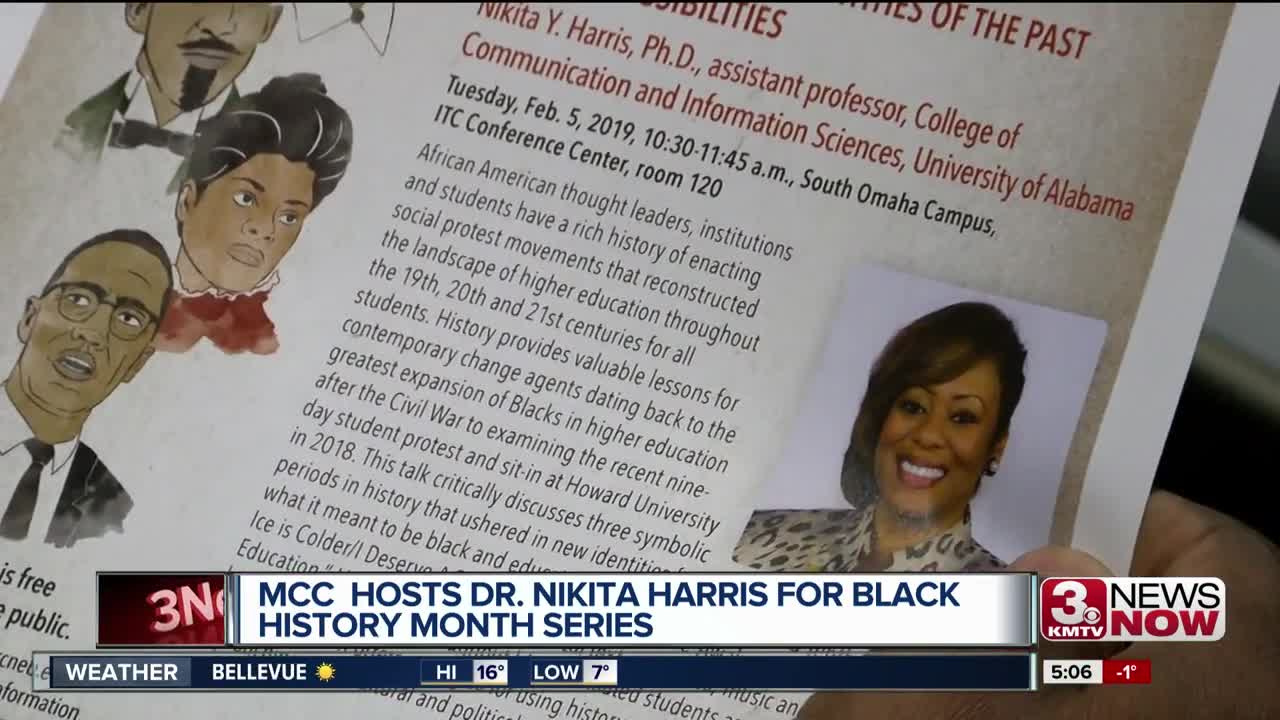OMAHA, Neb. (KMTV) — "They are the creators of their change, and they have to have a voice," Dr. Nikita Harris said. [They can't] be afraid to use their voice to move towards change."
Dr. Nikita Harris is challenging college students to become agents of social justice, and the change they want to see in their communities.
"You all as students can take the past and start to think about what you want to do in terms of the future,"Harris said.
"It just kind of makes diversity a fluid thing," Student Madisen Gaines-Miller said. "I think that's really important no matter where you are."
Dr. Harris is an assistant professor at the University of Alabama, in the College of Communications and Information Sciences.
She brought her message to students at Metropolitan Community College, where she took students through the history of black culture, movements and protests.
"For black students during the 1800s and 1940s, it was more about going and getting education to change lives, but to also change others lives," Harris said.
She discussed three critical eras in history that she says changed the landscape for what it meant to be black and educated in America.
During the Talented Tenth Era (1800-1940), Harris says black students longed for inclusion, personal freedoms and began the pursuit of civil and equal rights.
Dr. Harris later transitioned into the I Deserve A Seat/White Ice Isn't Colder (1940s-2000s) era. She says this is when students began to see changes arise. In 1954 we see the integration of schools with Brown v. Board of Education. Later into the 1960s Harris says more college students began to protest and start movements calling for equal rights. Dr. Harris also says, students began calling for an increased number in black faculty, greater recruitment and scholarships for black college students, as well as more courses on black history.
Dr. Harris later explained the rise of Historically Black Colleges and Universities during the early 1990s.
Finally, Dr.Harris explored an era she calls, The Millennial Pre-Awarkening to a Wakanda Education (2015-Future). She touched on several critical movements within black culture, like the Black Lives Matter movement, and various student protests against racism like at the University of Missouri in 2015. She also discussed the student protest at Howard University last year.
Dr. Harris says she wants students to know, "they do not have to wait around for administration or faculty or politicians, or a community leader ... they can lead the change," she said.
She also said students shouldn't be afraid to have uncomfortable conversations, something Robert Bond--a first-year student and veteran--took to heart.
"Look at different views," Bond said. I mean you can still agree with your side but listen to the other side ... I'll listen to the other side, and sometimes it makes sense to me," he said.
Harris says everyone can learn from the history of black college students, and she hopes millennials will continue to fill those shoes for the next generation.



